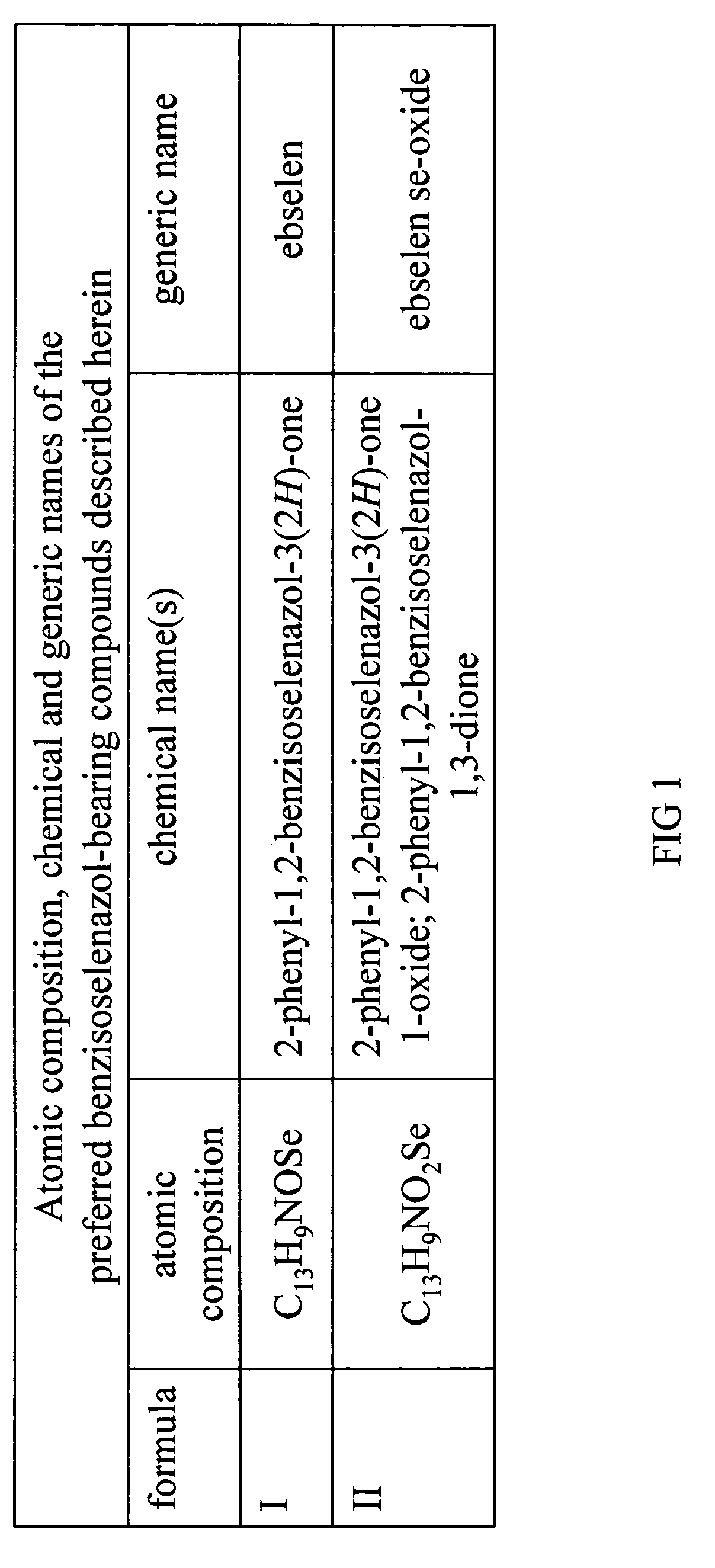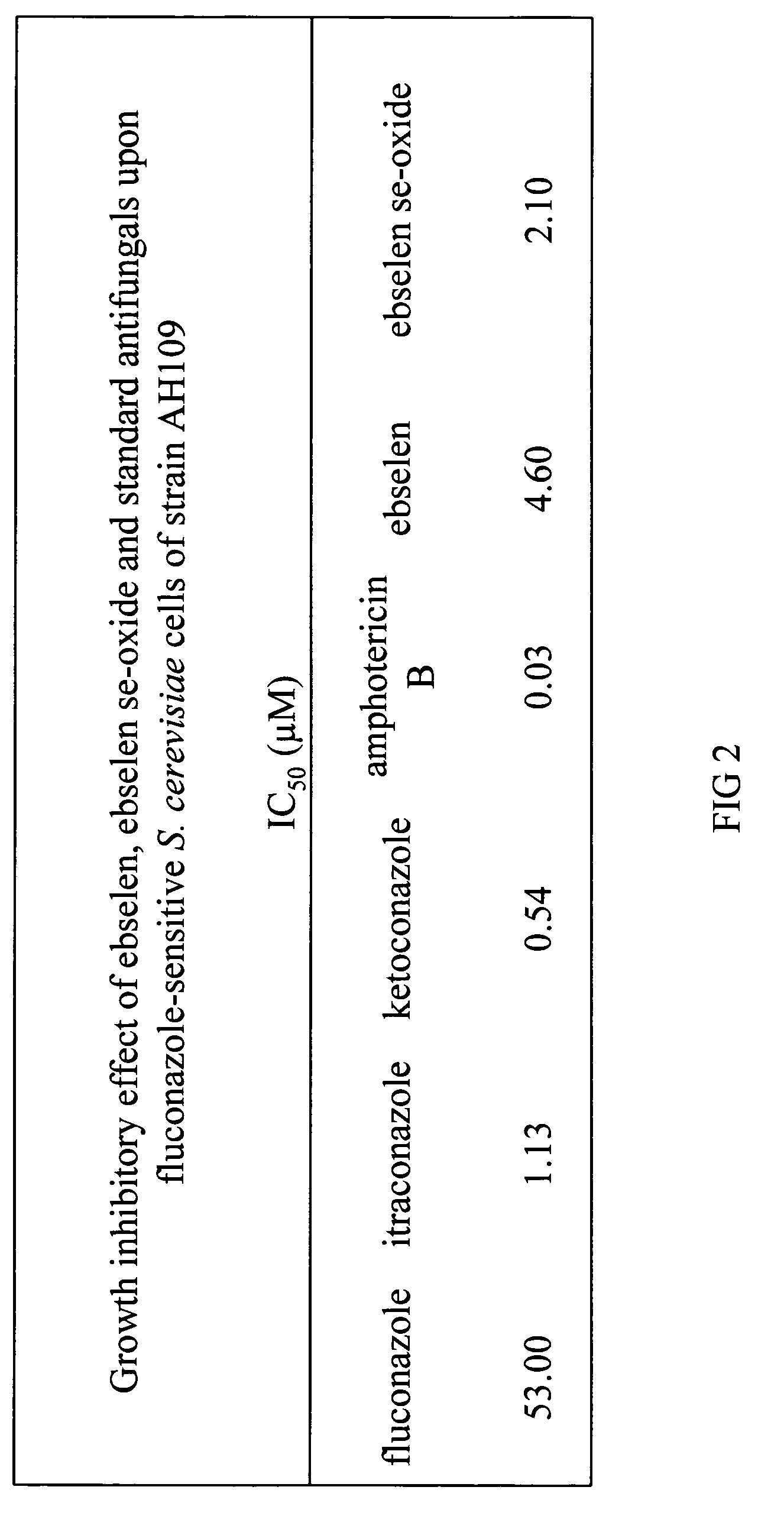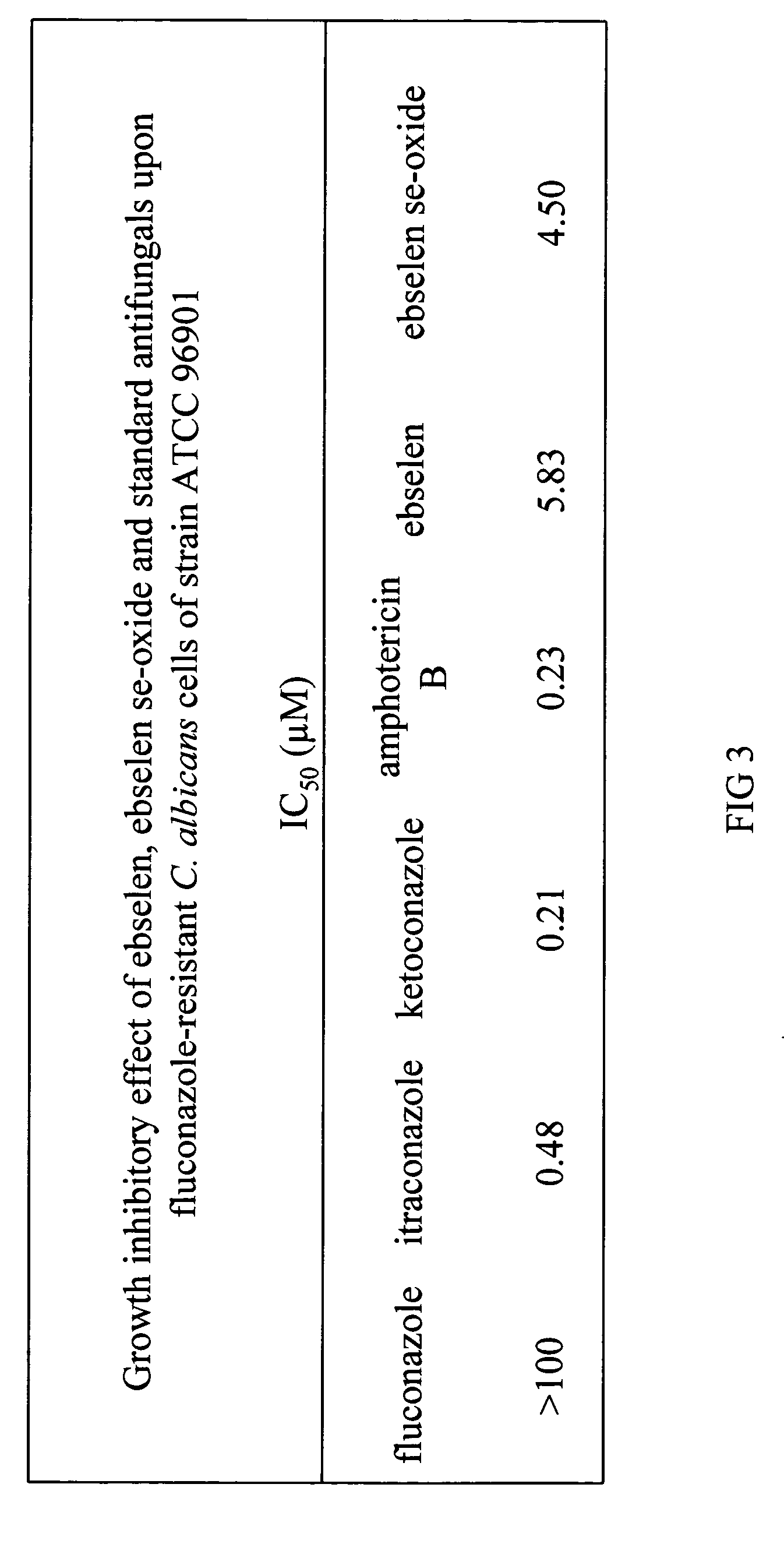Process for the treatment and prevention of diseases caused by fungi
a technology for fungi and disease, applied in the field of process for the treatment and prevention of diseases caused by fungi, can solve the problems of high risk of invasive candidiasis, serious mycosis, and all these diseases can be life-threatening for immunocompromised patients
- Summary
- Abstract
- Description
- Claims
- Application Information
AI Technical Summary
Benefits of technology
Problems solved by technology
Method used
Image
Examples
Embodiment Construction
[0020]The subject invention is directed to the treatment of humans or animals afflicted by opportunistic fungal infections, particularly by fluconazole-resistant isolates of fungi, using a process which involves the administration of an effective amount of a compound capable of inhibiting the fungal plasma membrane (H+)-ATPase pump (Pma1p). The Pma1p inhibitor as the active agent is to be administered in an amount ranging from 1 to 1200 mg per day. The said ATPase pump, commonly referred to as Pma1p, is a vital enzyme in both unicellular and filamentous fungi and represents a new therapeutic target in the fight against human diseases caused by fungi. The invention has efficacy against drug-resistant fungi, as well as against fungi not known to be resistant to standard antifungal therapies. Drug-resistant fungi are those which have developed resistance to azoles, such as fluconazole, or to other standard antifungal agents currently in clinical use, such as drugs which can be structur...
PUM
| Property | Measurement | Unit |
|---|---|---|
| pH | aaaaa | aaaaa |
| diameter | aaaaa | aaaaa |
| pH | aaaaa | aaaaa |
Abstract
Description
Claims
Application Information
 Login to View More
Login to View More - R&D
- Intellectual Property
- Life Sciences
- Materials
- Tech Scout
- Unparalleled Data Quality
- Higher Quality Content
- 60% Fewer Hallucinations
Browse by: Latest US Patents, China's latest patents, Technical Efficacy Thesaurus, Application Domain, Technology Topic, Popular Technical Reports.
© 2025 PatSnap. All rights reserved.Legal|Privacy policy|Modern Slavery Act Transparency Statement|Sitemap|About US| Contact US: help@patsnap.com



